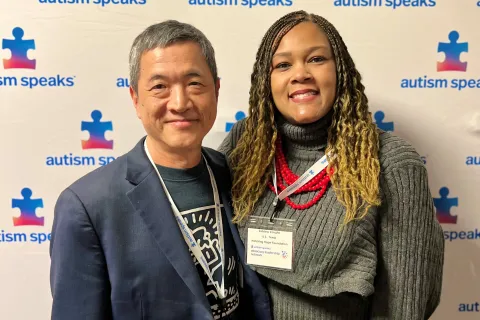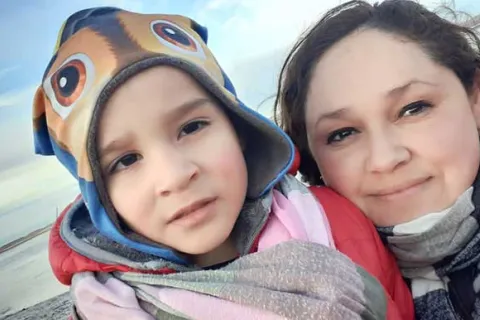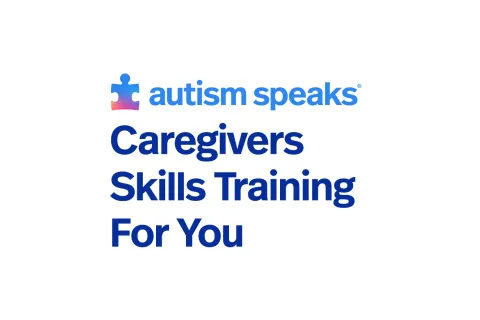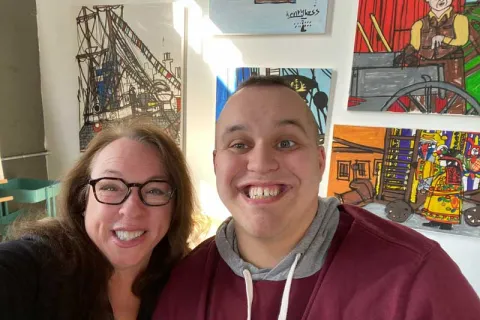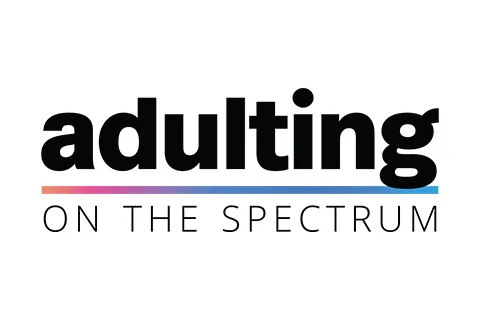Talking to your healthcare provider about concerns
First Concern to Action Tool Kit
If you have concerns about your child's development, call your health care provider and tell him or her that you would like to make an appointment because you are concerned about your child’s development.
Bring the milestones checklist with you and include specific examples. If you or the health care provider thinks there might be a delay, ask for a general developmental screening and an autism-specific screening. If either of you still concerned, ask for a referral to a specialist who can do a more in-depth evaluation. While you wait for the referral, you can also call your state’s public Early Intervention office to find out if your child qualifies for services.
You should maintain a trusting relationship with your health care provider. If you have questions, ask them. Bring the MCHAT and any notes with you at the visit so he or she can understand your concerns more.
What typically happens during this visit?
Your health care provider will conduct a developmental screening. The American Academy of Pediatrics has published recommendations on what happens during a typical “well-child” visit. These well child visits, even if your child is not sick, are necessary.
A developmental screening is conducted to see if your child is learning basic skills when he or she should, or if there might be delays. The health care provider might ask you some questions or talk and play with your child during an exam to see how he or she learns, speaks, behaves, and moves. If your child shows delays in a particular area of development, it does not mean that he or she will meet the criteria for a particular diagnosis. This screening simply provides a useful way to identify the potential risk of developing differently.
According to the American Academy of Pediatrics, all children should be formally screened for developmental delays and disabilities during regular well-child health care provider visits at nine months, 18 months, and 24 or 30 months. Additional screening might be needed if a child is at high risk for developmental problems due to preterm birth, low birth weight or other reasons.
There are many types of formal screening tools for developmental delay. Some will be questions for you to answer, and others will be answered based upon what your health care provider observes. Some examples of general developmental screeners are the Communication and Symbolic Behavior Scales (CSBS), the Parents’ Evaluation of Developmental Status (PEDS), and the Ages and Stages Questionnaire (ASQ). The Easter Seals has an online ASQ that you can take online.
You may also be asked to have your child’s hearing tested with an audiology exam. Hearing loss can affect a child’s ability to develop communication and social skills. A hearing test is usually a part of the screening process, and if hearing loss is found, autism may be ruled out.
What is an autism screening?
The American Academy of Pediatrics (AAP) recommends that all children receive autism screening at 18 and 24 months of age, and the Modified Checklist of Autism in Toddlers (M-CHAT) is one of the AAP’s recommended tools. The M-CHAT™ is a scientifically validated checklist of questions used for screening children between 16 and 30 months of age to assess their risk for autism spectrum disorder.
The M-CHAT called a “screener” because it is designed to identify those children who need to be referred for a full evaluation. There is a possibility your child may screen positive on the M-CHAT but will not be diagnosed with ASD. This is why it is important to follow up with your health care provider.
How do I prepare for the visit to my child’s health care provider?
Before you go to your appointment, fill out the M-CHAT found at the end of this tool kit and bring it to your health care provider. There is also a list of general questions about your concerns that you can complete and bring with you. Your health care provider will ask about these concerns, and it may help determine next steps by thinking specifically about these concerns.
If the M-CHAT screener indicates your child has some signs of autism, it will be important to complete the second step of the screening, the M-CHAT Follow Up interview. The health care provider will need to ask you some additional questions in person to do this. Not all children who show signs of autism after the first step will have autism. For some children, this screener also picks up other developmental delays, like talking late, that also need to be sorted out to see if extra help is needed.
It is important to remember that you know your child best. If you are still concerned after your visit with your health care provider, you may follow-up independently even without a referral and get a second opinion. You can do so by contacting the local birth to three agency listed at the end of the tool kit. If your child is over the age of three, you can contact your local school district and request a formal evaluation.
Learn more about responding to your concerns about your child in Autism Speaks First Concern to Action tool kit.

